Jesse Abelson and classmates combat malnutrition in Haiti by turning bunchgrass into a cash crop
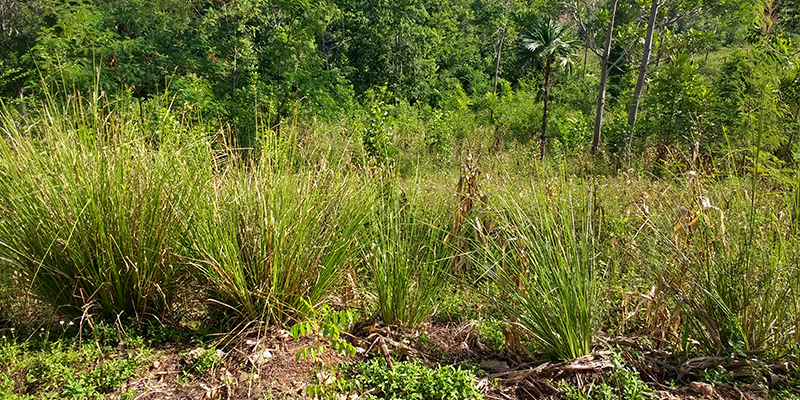
Even back on campus, Jesse Abelson’s memories of being a volunteer emergency medical technician in Haiti never strayed far from his mind. So when friend and fellow CBS student Leeore Levinstein mentioned the Grand Challenges course ‘Seeking Solutions to Global Health Issues’, Abelson saw the opportunity he was looking for.
“Often by the time the patient got to the hospital, it was too late. There was nothing we could do for them,” Abelson recalled. “Coming into the Grand Challenges course, I knew that I wanted to work on a project in Haiti, but I had no idea what that would be or how I would accomplish it.”
As the semester began, Abelson began discussing his ideas for combating health problems in Haiti along with Levinstein and his new classmate Dalton Schutte who had also volunteered in Haiti. Realizing that many health problems in Haiti could be traced back to poverty and malnutrition, the group soon found a possible cause: Haiti’s severe soil erosion was resulting in decreased crop yield.
It was during this initial research that Abelson and his teammates first heard of vetiver, a bunchgrass whose deep roots and thick leaves make it especially effective at preventing runoff and soil erosion when planted around crops. Haitian farmers were already familiar with the crop and its role in preventing soil erosion, yet it wasn’t being widely used because most Haitian farmers were unable to forfeit fertile land for a plant that would not provide them with food or immediate profit.
With this in mind, Abelson and his team came up with an innovative solution: they would turn vetiver into a cash crop by buying the crop’s shoots from farmers and spinning their fibers into yarn. Vetiver Solutions had its start.
The group then turned their focus to figuring out the next step for their burgeoning company: finding funding. Originally funded by donations from the friends and family, the group pursued additional funding through the University’s Institute on the Environment’s Acara Challenge which awards funding to projects tackling social and environmental grand challenges. The team was awarded second place and named the crowd favorite.
During the summer of 2017, Abelson returned to Haiti with his team, this time to pilot their project. Their mission for the summer was to find the answer to two questions: First, was it possible to create vetiver yarn without a laboratory – or electricity? And even if it was, would farmers be receptive to the idea? Abelson’s team found the answer to both questions to be a resounding “yes.” Together, the Vetiver team became the first to make vetiver yarn outside a laboratory.
Soon after, the group experienced another victory: they had been accepted to attend the Clinton Global Initiative University’s annual meeting where thousands of college students from over 80 countries discuss a range of critical global issues.
“We were incredibly interested in gaining knowledge from individuals who were once in our shoes [and for] possible partnerships with other organizations,” Abelson said.
Not only did the conference deliver ample networking opportunities, but also allowed Abelson to hear a keynote featuring his personal hero, anthropologist and humanitarian Dr. Paul Farmer.
“My most meaningful takeaway was that there are some incredible and inspiring individuals working tirelessly to make the world a better place,” Abelson said.
Abelson, also, has been working tirelessly as Vetiver Solutions prepares to launch in early 2018. The company has grown from three employees to five with the addition of University students Becca Desens as Chief Marketing Officer and Elizabeth Alonzi as Chief Science Officer and was recently awarded a grant from the Institute on the Environment. In February, Abelson will return to Haiti to direct his attention to increasing the production and, eventually, selling the vetiver yarn. Within a year, he hopes the company will turn a profit and expand both in Haiti and beyond.
But regardless of what the future holds, Vetiver Solutions is already a success in Abelson’s mind. “As college students we are often told we are the leaders of tomorrow, but we can also be leaders of today.”
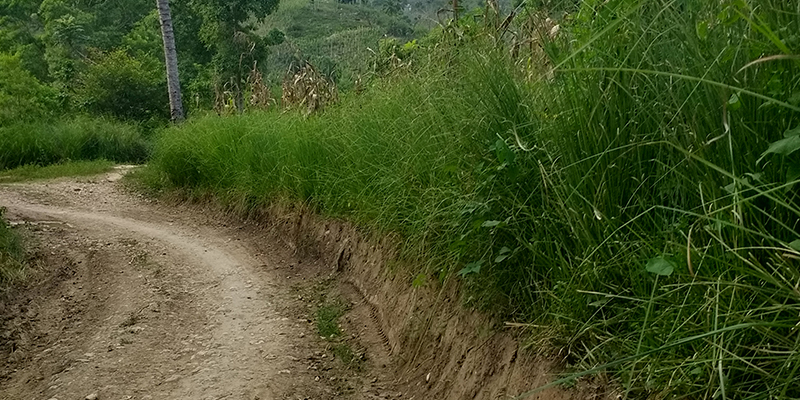
Vetiver planted alongside a road in Haiti.
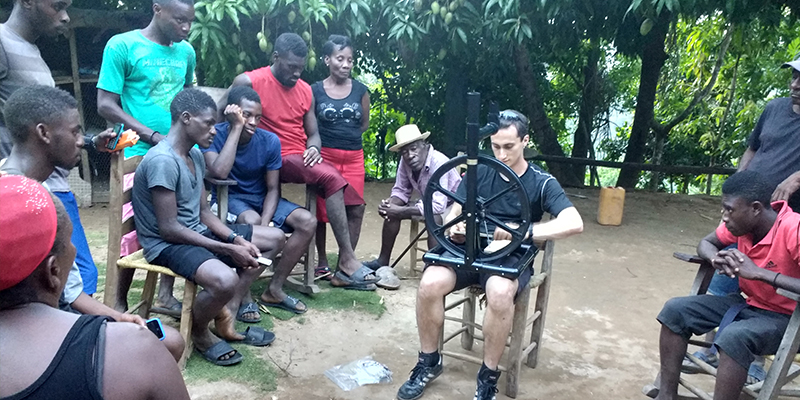
Abelson demonstrates spinning Vetiver into a yarn.
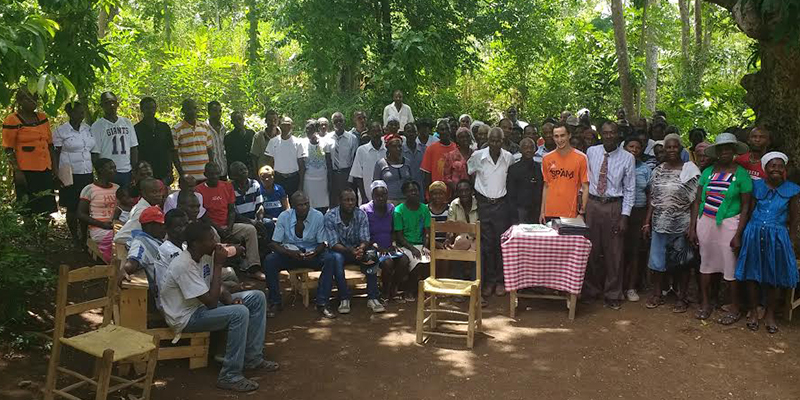
Abelson poses with residents of Moreau, Haiti at a celebration in his honor.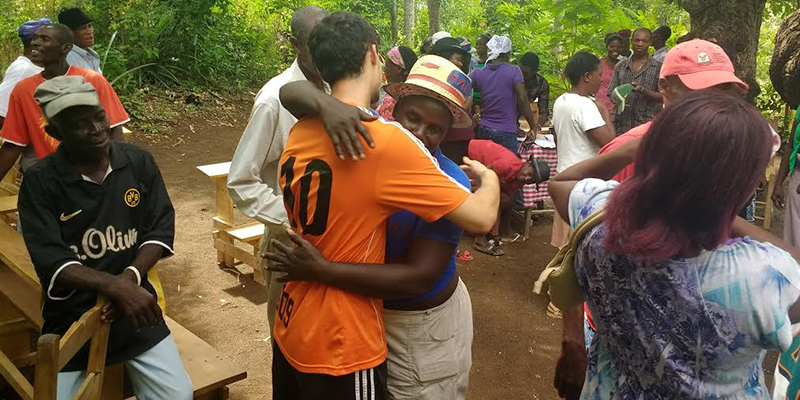
Abelson hugs a resident of Moreau at a celebration in his honor.
Learn more about Vetiver Solutions at by visiting their website or Facebook page.